New Doctor of Medicine Proves Nasopharyngeal Cancer Risk Factors
Located in the Postgraduate Meeting Room Lt III, Denpasar Postgraduate Building, a Doctoral Promotion examination was held with promovendus candidate dr. I Gde Ardika Nuaba, Sp. T.H.T.B.K.L., Subsp.Onk(K)., FICS., with the title "Polymorphism of the CYP2E1 rs3813867 gene, CYP1A1 rs4646903 gene and GSTP1 rs1695 gene as a risk factor for undifferentiated nasopharyngeal carcinoma in the Balinese." (6/3/2023)
Nasopharyngeal carcinoma (NPC) is a tumor that grows from epithelial cells lining the surface of the nasopharynx, usually originating from the lateral wall of the nasopharynx, especially the fossa of Rosenmuller. The incidence of NPC ranks first in malignancy in the Ear, Nose, Throat, Head and Neck Surgery (ENT-KL) section and is in fifth place for all malignancies in Indonesia. The World Health Organization (WHO) divides NPC into 3 types based on histopathological classification, namely: NPC WHO type I (keratinizing squamous cell carcinoma), NPC WHO type II (non-keratinizing squamous cell carcinoma), and NPC WHO type III (undifferentiated carcinoma). undifferentiated). NPC is a disease with a multifactorial etiology, which is associated with Epstein-Barr virus (EBV) infection, genetic, environmental, and dietary factors. NPC WHO type III or undifferentiated type is the most common histopathological type and its pathophysiology is closely related to EBV infection, environment, diet and genetic factors. Genetic traits play an important role in the development of NPC. Several gene polymorphisms are thought to be endogenous factors and influence the process of malignancy including the CYP2E1 rs3813867 gene, CYP1A1 rs 4646903 gene and GSTP1 rs1695 gene.
This research was a case control study design, with a total sample of 62 consisting of 31 cases of non-Balinese NPC and 31 cases of non-Balinese NPC. The research was conducted at the ENT-KL poly RSUP Prof. Dr. I.G.N.G. Ngoerah and the Integrated Biomedical Laboratory of the Udayana Faculty of Medicine for the period July 2021 to July 2022. Sampling was taken using the consecutive sampling technique. Subjects were selected at the ENT-KL Polyclinic at RSUP Prof. Dr. I.G.N.G. Ngoerah Denpasar based on inclusion and exclusion criteria. Samples were grouped into case and control groups. The case group was patients with undifferentiated type of NPC, Balinese ethnicity. The control group was patients at the ENT-KL polyclinic, Balinese people who were not NPC and did not suffer from cancer and a history of cancer in other organs.
The novelty of this study is that there have been no previous studies regarding the CYP2E1 rs3813867 gene polymorphism, CYP1A1 rs4646903 gene polymorphism and GSTP1 rs1695 gene polymorphism as risk factors for the occurrence of undifferentiated type NPC in the Balinese, as well as exogenous factors as risk factors that play a role in the occurrence of undifferentiated type NPC in the Balinese. The new finding from this study is the recognition of the role of genetic variation in the occurrence of undifferentiated type NPC in the Balinese, namely: CYP1A1 rs4646903 gene polymorphism and GSTP1 rs1695 gene polymorphism as risk factors for undifferentiated type NPC in the Balinese, as well as exogenous factors that have been proven to be factors The risk of undifferentiated type of NPC in the Balinese people is the consumption pattern of salted fish and active smokers.
The implications of the results of this study are the proven endogenous factors such as the CYP1A1 rs4646903 gene polymorphism and the GSTP1 rs1695 gene polymorphism as risk factors in the mechanism of undifferentiated type NPC in the Balinese people, as well as complementing the theory of NPC pathogenesis which is still lacking from genetic factors, as well as proven exogenous factors. which also play a role as a risk factor for the occurrence of undifferentiated type NPC in the Balinese, namely the consumption of salted fish and smoking. The results of this study can be used to understand the prognostic factors of non-differentiated NPC in the Balinese and to carry out preventive efforts by conducting active counseling to the Balinese and involving decision makers (government), regarding salted fish consumption patterns and smoking lifestyle which have been proven to be factors. risk of undifferentiated type of NPC.
The exam was led by the Dean of FK Unud, Dr. dr. Komang Januartha Putra Pinatih, M.Kes., with the testing team:
1. Dr. dr. I Wayan Weta, MS., Sp.GK (Promoter)
2. Prof. dr. Wayan Suardana, Sp.THT- KL (K) (Co-promoter I)
3.Dr. dr. Urged Made Wihandani, M.Kes (Co-promoter II)
4. Dr. dr. I Made Jawi, M. Kes
5. Prof. Dr. dr. Tjok Gde Agung Senapathi, Sp.An., KAR
6. Dr. dr. I Wayan Putu Sutirta Yasa, M.Si
7.Dr. dr. Gde Ngurah Indraguna Pinatih, M.Sc, Akp.Sp.GK
8.Dr. dr. I Made Sudarmaja, M. Kes
9.Dr. dr. I Nyoman Gede Budiana, Sp.OG (K)
10.Dr. dr. Putu Yuliawati, Sp.M(K)
While academic invitations are:
1.Dr. dr. I Wayan Eka Sutyawan, Sp. M(K)
2.Dr. dr. I Made Gede Widnyana, Sp.An. KAR
3.Dr. dr. I Wayan Gede Artawan Eka Putra, M. Epid
4.Dr. dr. Made Lely Rahayu, Sp.THT.KL(K).,FICS
5.Dr. dr. Sari Wulan Dwi Sutanegara, Sp.THTBKL(K)
In this exam, Dr. dr. I Gde Ardika Nuaba, Sp. T.H.T.B.K.L.,Subsp.Onk(K).,FICS., was declared the 368th Doctor Graduate Graduate of the Doctoral Degree in Medical Sciences, Faculty of Medicine, Udayana University with the title of Cumlaude

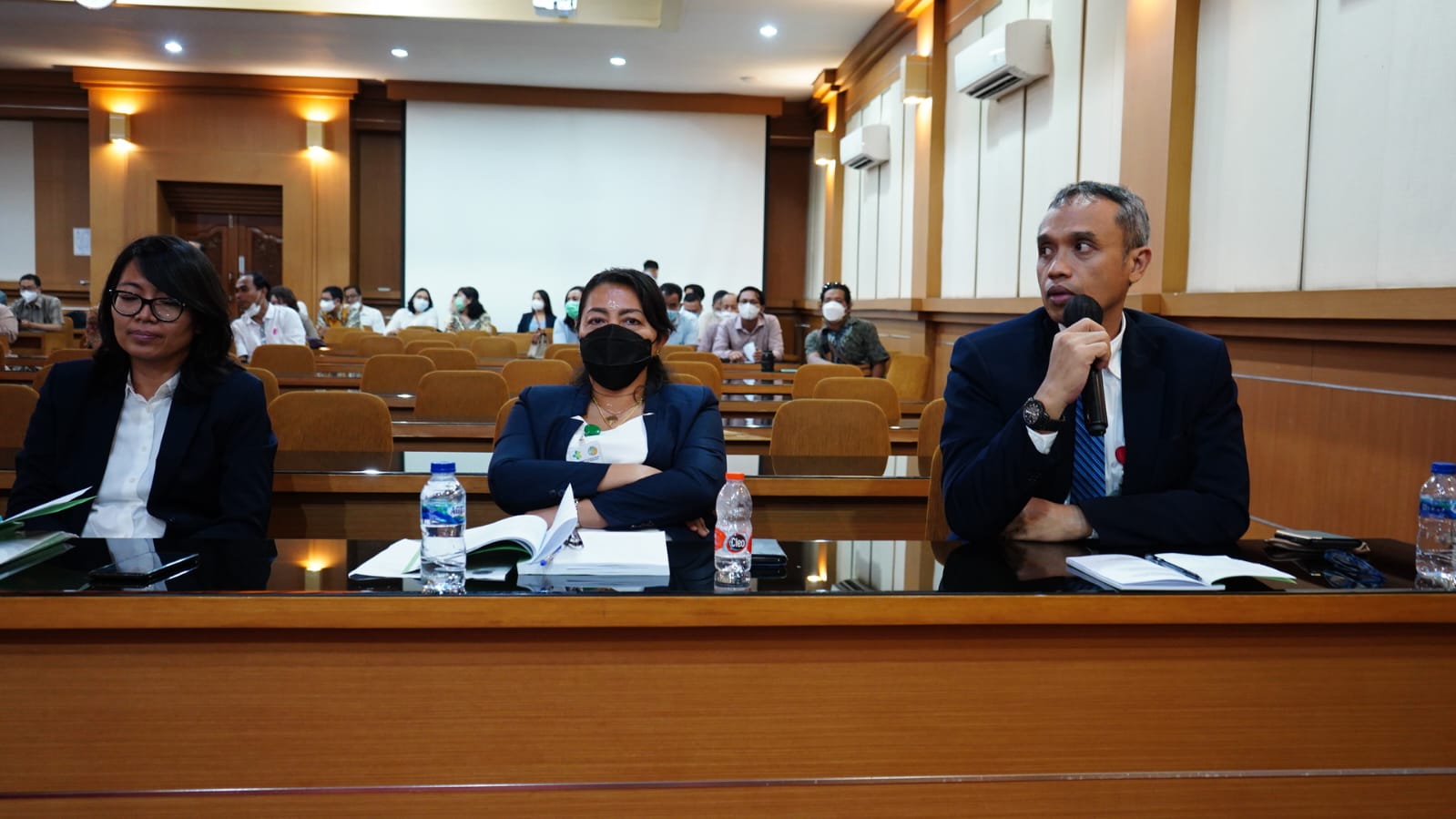
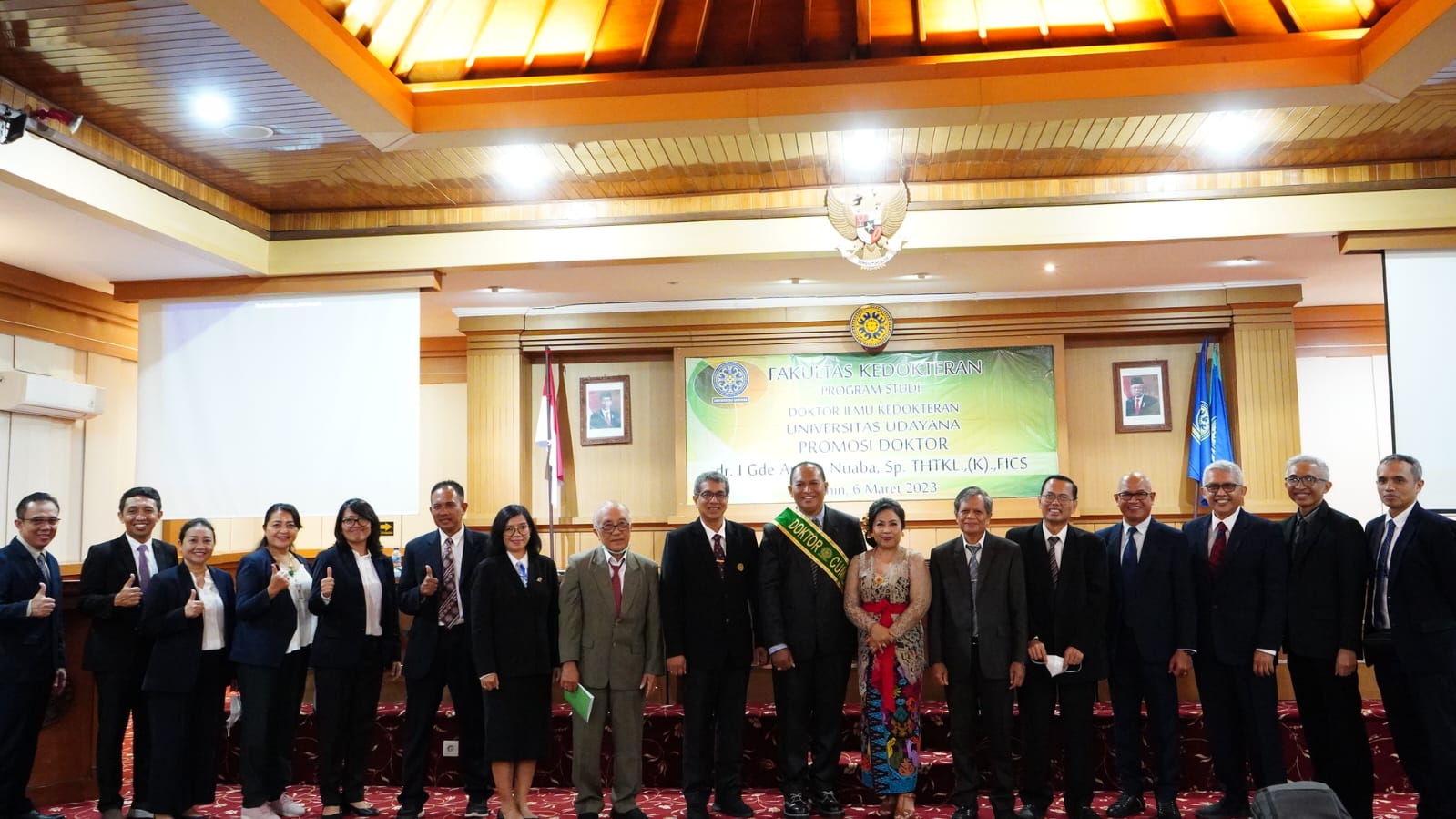
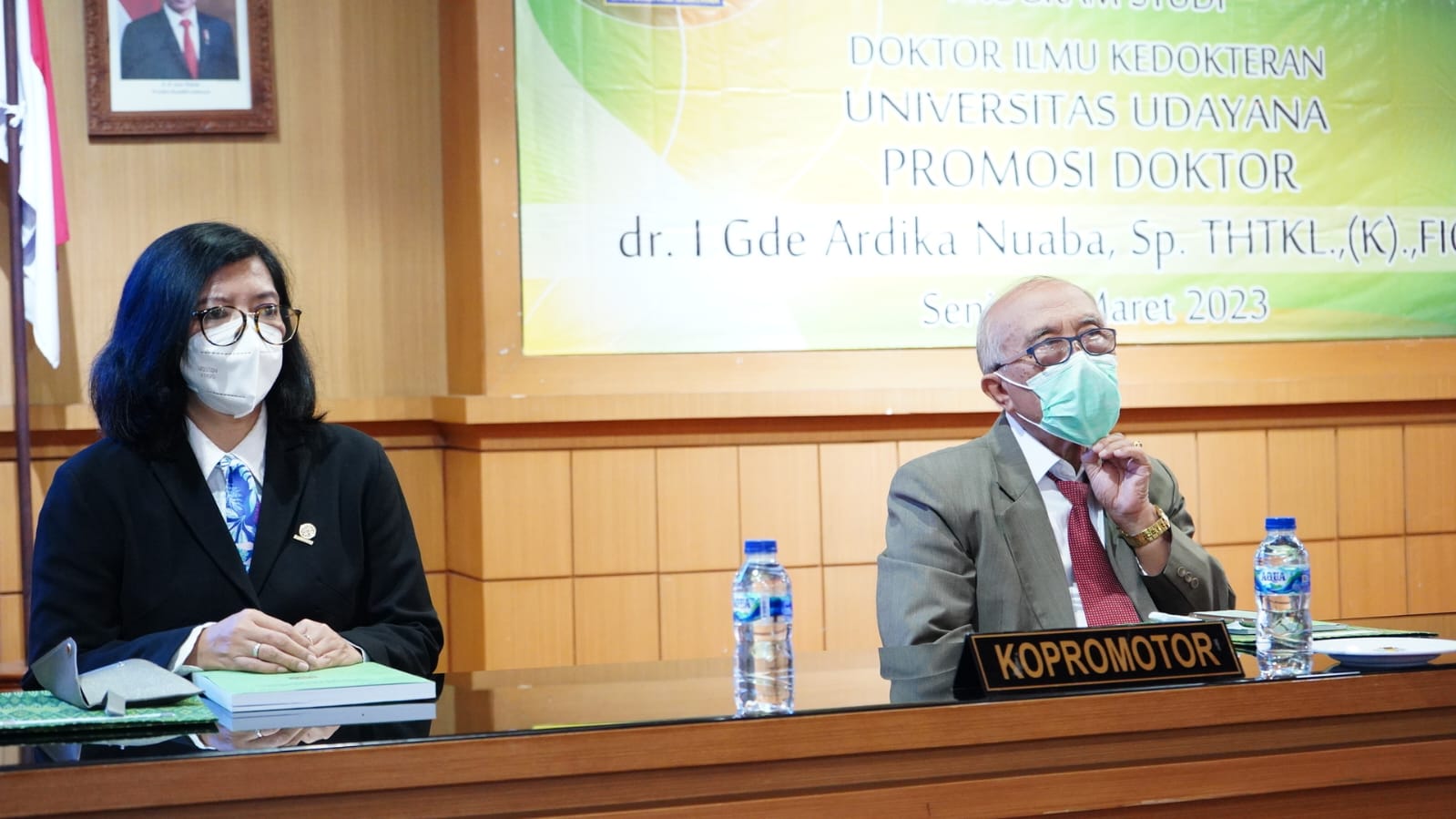
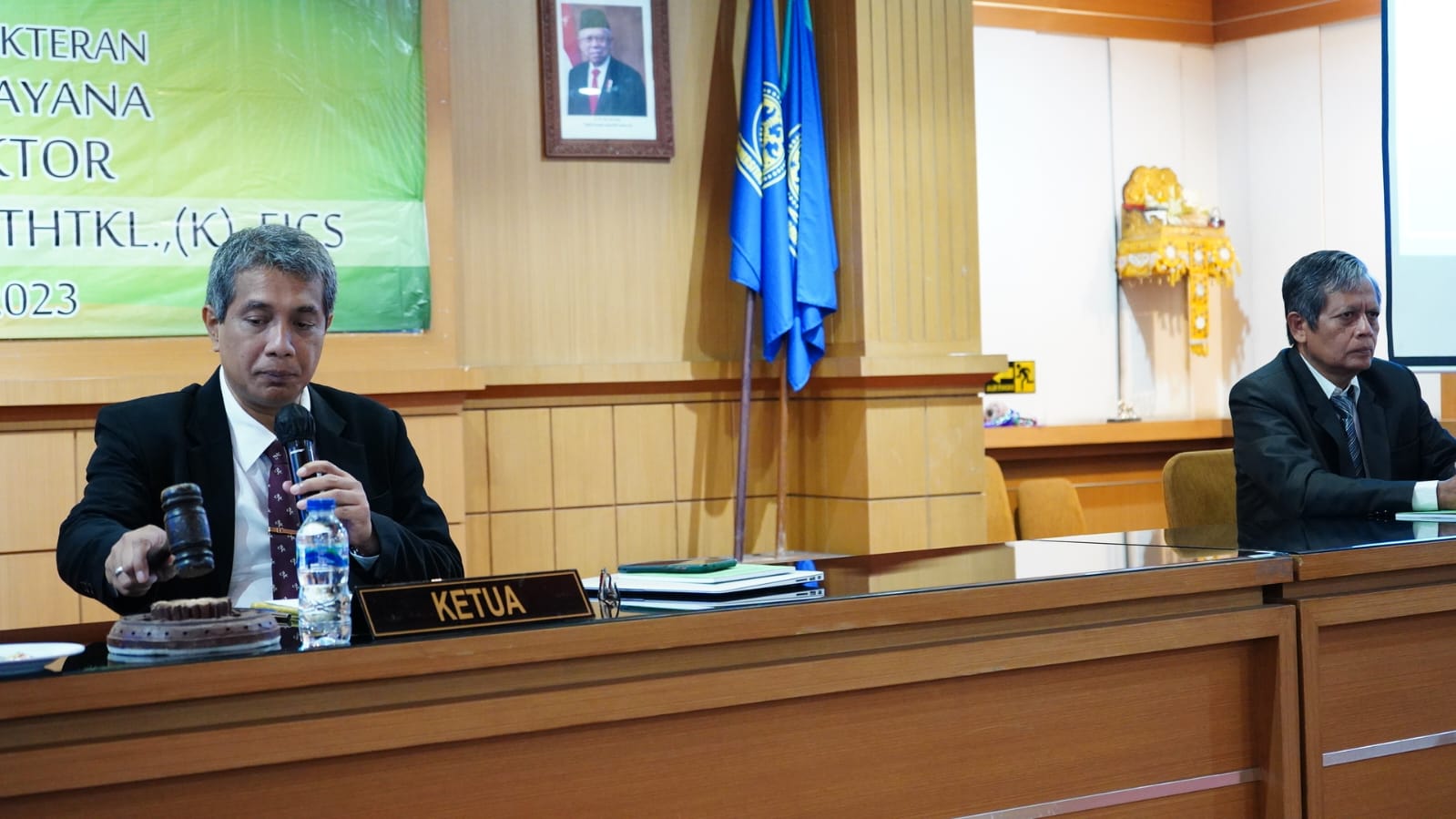
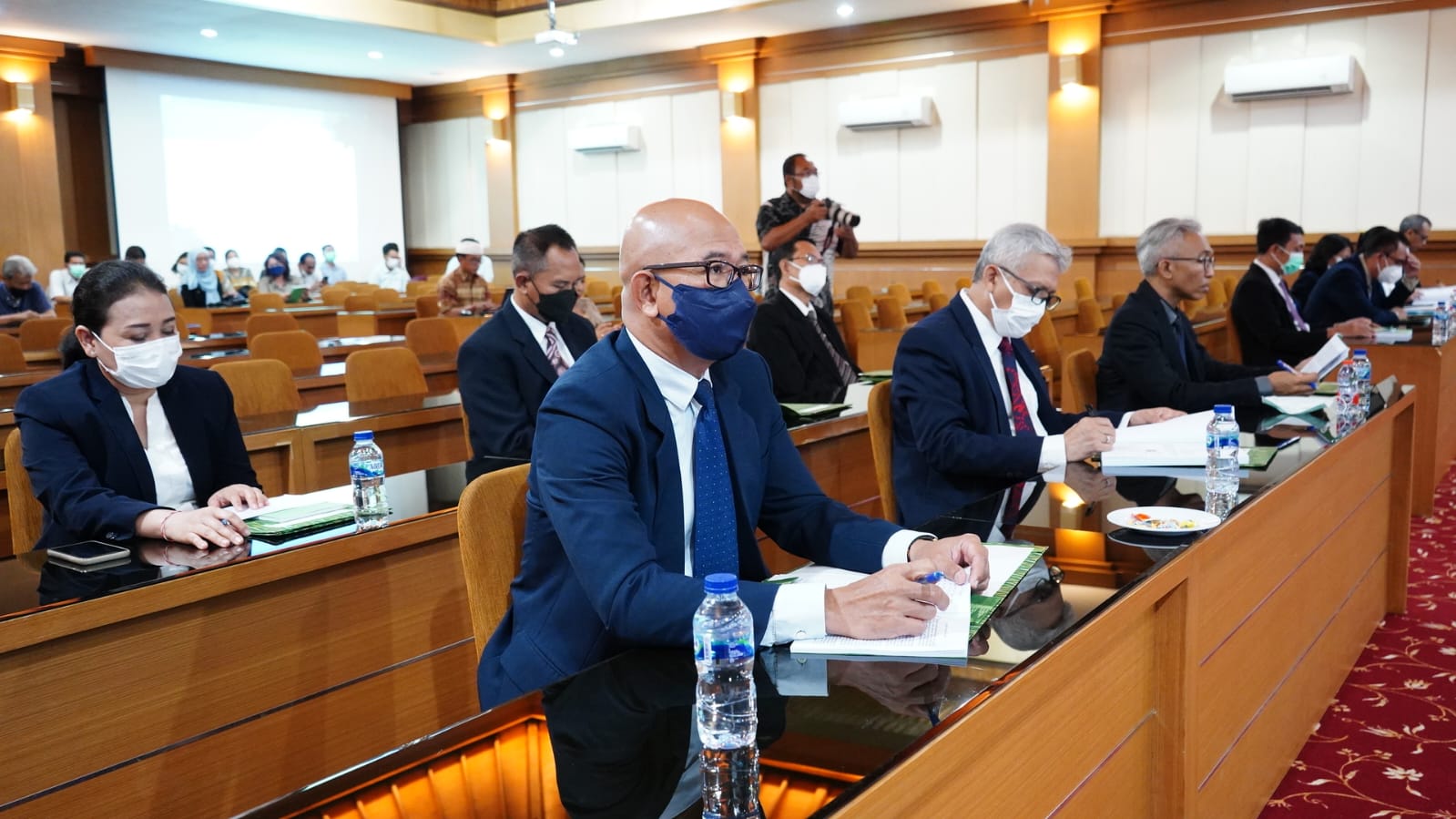
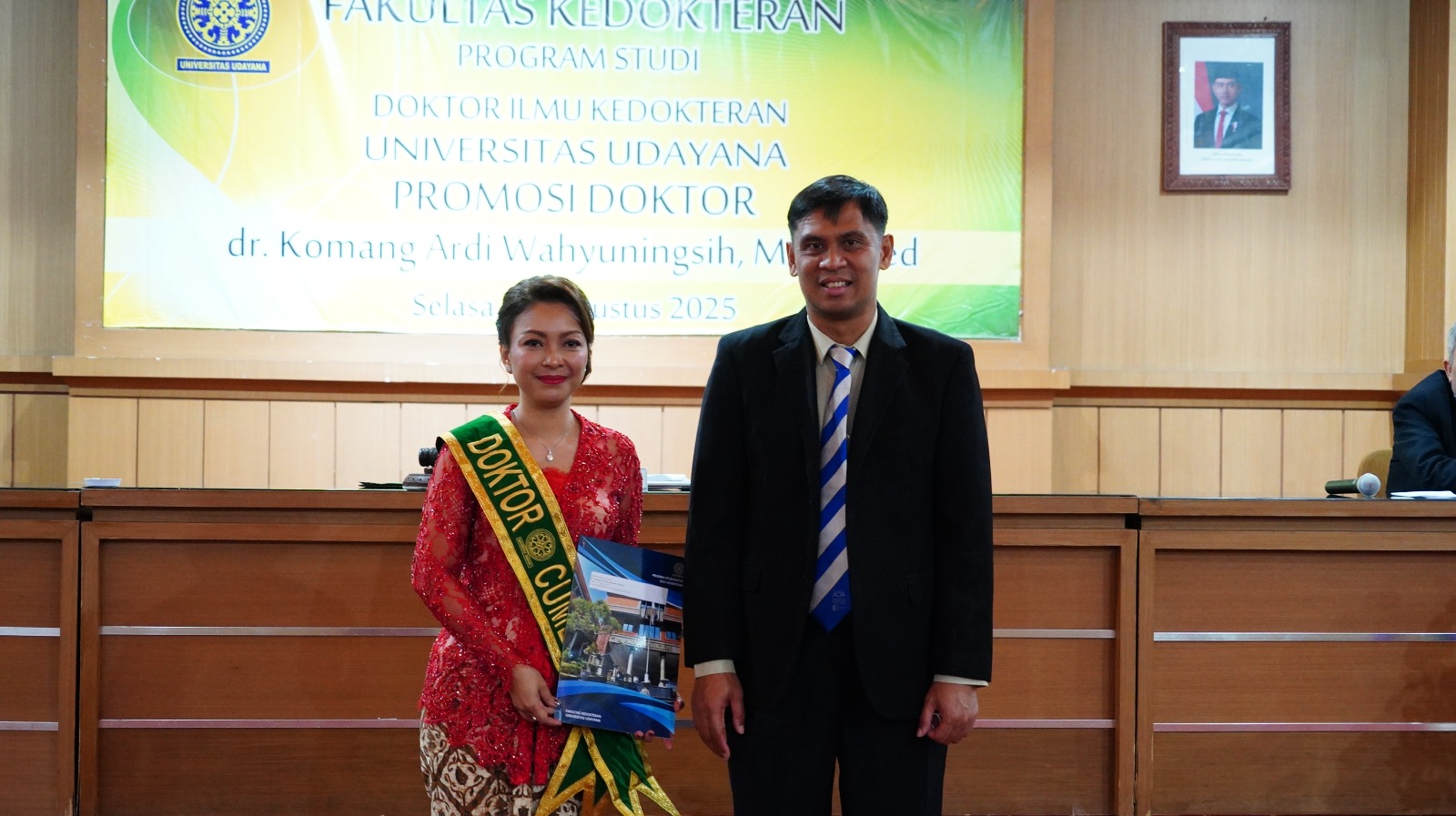
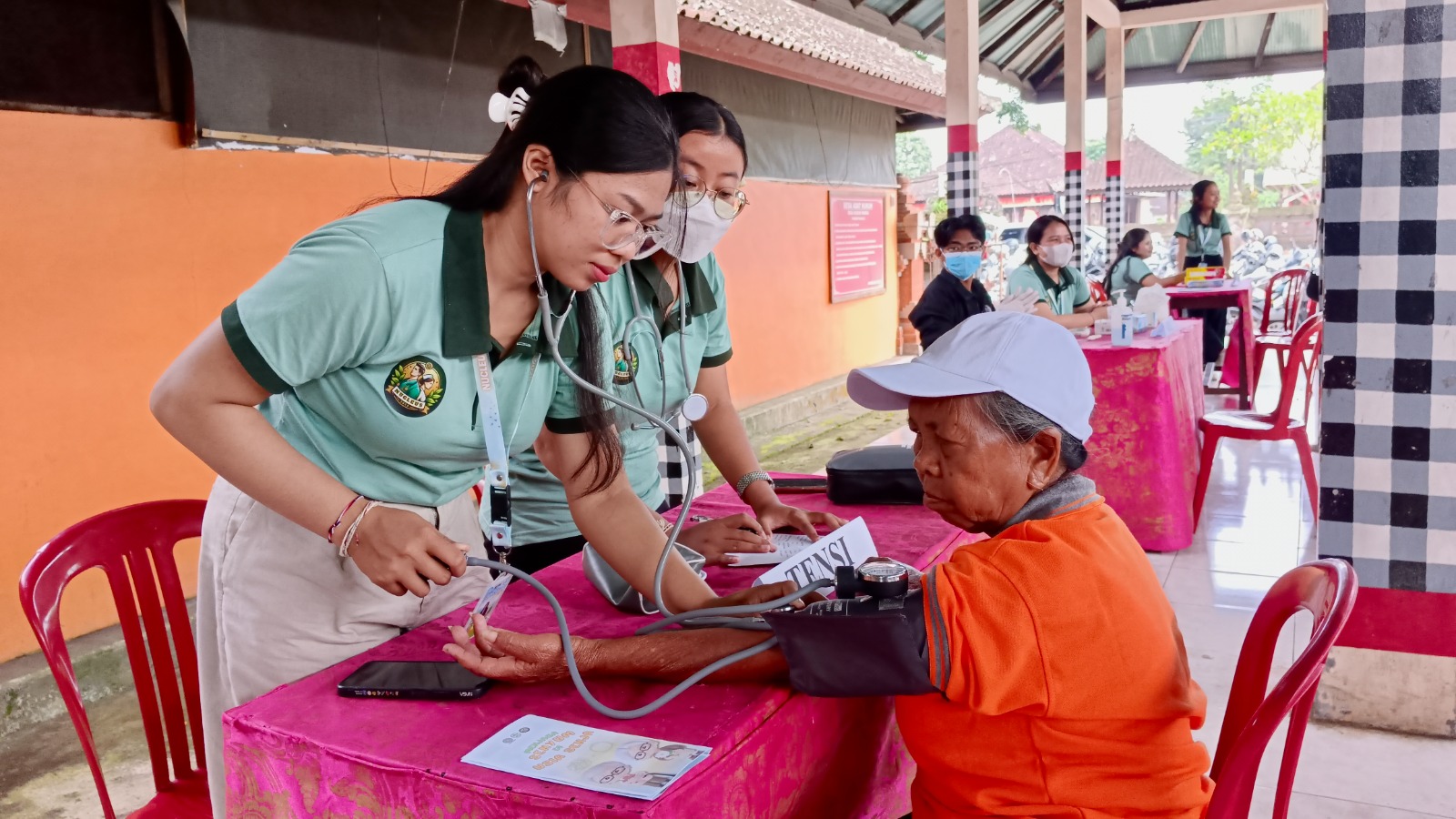

UDAYANA UNIVERSITY